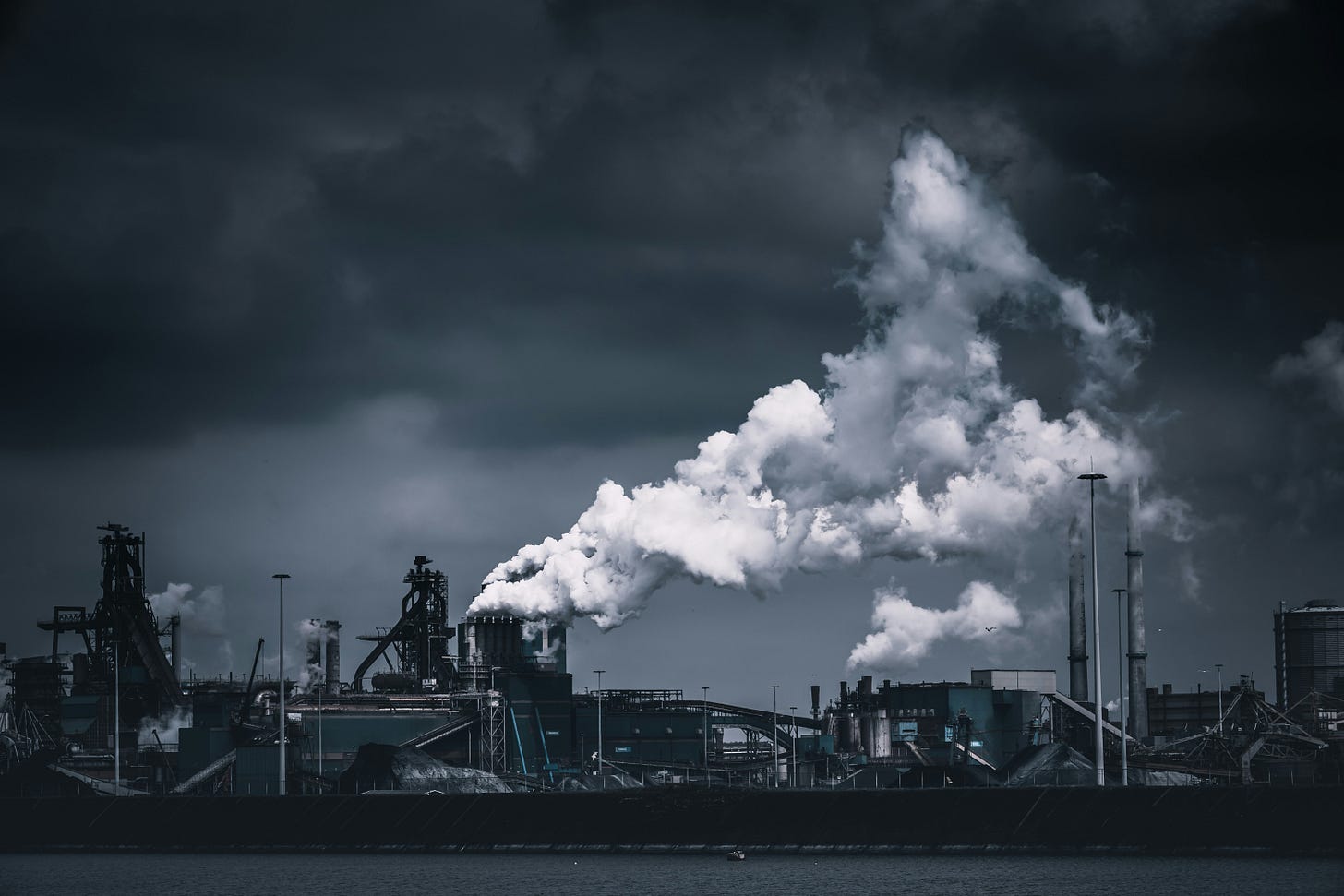“We are on the brink of an irreversible climate disaster”
Will the world treat this stark warning from scientists with the seriousness it deserves?

A new report from scientific experts about our ailing, overheating planet was recently published.
Per Yale Climate Connection:
Earth’s climate in 2024 is “in a major crisis with worse to come if we continue with business as usual,” a team of 14 climate scientists warned in “The 2024 state of the climate report: Perilous times on planet Earth.” The report did not sugarcoat their view of the dangers humanity is facing.
“We are on the brink of an irreversible climate disaster,” the report begins. “This is a global emergency beyond any doubt. Much of the very fabric of life on Earth is imperiled. We are stepping into a critical and unpredictable new phase of the climate crisis.”
The report is the latest such annual peer-reviewed paper published in the journal BioScience by an international team of scientists led by Oregon State ecologist William Ripple.
The authors found that 25 of 35 “planetary vital signs” reached record levels last year, including global temperatures, human climate pollution, fossil fuel subsidies, heat-related mortality rates, meat production, and loss of forest cover.
After decades of warnings from climate scientists and efforts by some policymakers and activists, “the world has made only very minor headway on climate change, in part because of stiff resistance from those benefiting financially from the current fossil-fuel-based system,” it says. “We are currently going in the wrong direction and our increasing fossil-fuel consumption and greenhouse gas emissions are driving us toward a climate catastrophe. We fear the danger of climate breakdown.”
They did note a few positive indicators like clean energy production.
“Of course, the situation is not hopeless,” wrote Harvard science historian and study co-author Naomi Oreskes via email.
“What we want people to understand is that, while there has been progress – particularly in the price and deployment of renewables – it’s not nearly enough. And the atmosphere does not respond to our intentions. It responds to chemistry.”
THE CONDOR’S VIEW
There you have it. This ominous warning is not a sign that all is lost, that we shouldn’t do anything, that there is no hope, that the worst impacts are inevitable. Far from it. What it means is that we need more action, with greater urgency.
Towards a fossil fuel free future!
Writing on The Conversation, two of the report’s authors1 outline the urgent action that is needed to stave off the worst impacts of climate change. Thomas Newsome and William Ripple write:
Our report stresses the need for an immediate and comprehensive end to the routine use of fossil fuels.
It calls for a global carbon price, set high enough to drive down emissions, particularly from high-emitting wealthy countries.
Introducing effective policies to slash methane emissions is crucial, given methane’s high potency but short atmospheric lifetime. Rapidly cutting methane could slow the rate of warming in the short term.
Natural climate solutions such as reforestation and soil restoration should be rolled out to increase how much carbon is stored in wood and soil. These efforts must be accompanied by protective measures in wildfire and drought prone areas. There’s no point planting forests if they will burn.
Governments should introduce stricter land-use policies to slow down rates of land clearing and increase investment in forest management to cut the risk of large, devastating fires and encourage sustainable land use.
We cannot overlook climate justice. Less wealthy nations contribute least to global emissions but are often the worst affected by climate disasters.
Wealthier nations must provide financial and technical support to help these countries adapt to climate change while cutting emissions. This could include investing in renewable energy, improving infrastructure and funding disaster preparedness programs.
Internationally, our report urges stronger commitments from world leaders. Current global policies are insufficient to limit warming to 1.5°C above pre-industrial levels.
Without drastic changes, the world is on track for approximately 2.7°C of warming this century. To avoid catastrophic tipping points, nations must strengthen their climate pledges, reduce dependence on fossil fuels, and accelerate the transition to renewable energy.
Immediate, transformative policy changes are now necessary if we are to avoid the worst effects of climate change.
Climate change is already here. But it could get much, much worse. By slashing emissions, boosting natural climate solutions and working towards climate justice, the global community can still fend off the worst version of our future.
Be a canary for the climate
Don’t keep this to yourself. Tell your friends, tell your family, tell your elected representatives, tell everyone:
The science is clear: Our over-heating planet is in deep trouble
If we don’t act urgently to curb planet-heating greenhouse gases, it’ll get much, much worse
We need to scale up renewable energy drastically and phase out fossil fuels in ways that center justice and equity so no one gets left behind
Our politicians need to pass and support laws, policies and rules that will facilitate, accelerate and regulate this transition
Newsome is Associate Professor in Global Ecology at the University of Sydney. Ripple is Distinguished Professor and Director, Trophic Cascades Program, Oregon State University.



Although we have the technology it is not and will not be employed rapidly in emergency response. There isn’t a single sign to suggest otherwise or that we will do anything but burn enough carbon to trigger tipping points. Some of us have been calling for rapid change for almost 20 years now and have watched the carbon budget dwindle down to Hail Mary status spent by those who profit from destroying a livable climate.
scary and true!